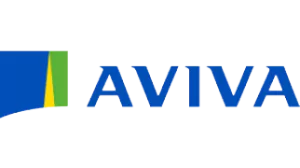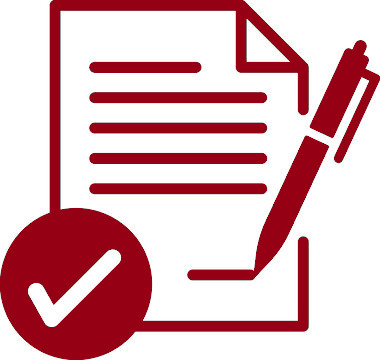We compare quotes from leading insurers
Protect Your Clothing Manufacturing Business with Specialist Insurance Coverage
Specialized Insurance for the Clothing Manufacturing Ecosystem
In the dynamic world of clothing manufacturing, your business faces unprecedented challenges. From intricate supply chains to rapidly evolving technology and global market pressures, the textile industry demands robust, nuanced insurance protection. Insure24 delivers comprehensive insurance solutions specifically engineered for clothing manufacturers of all scales – from boutique design studios to large-scale production facilities.
The Clothing Manufacturing Landscape
- Global textile market valued at over $1.5 trillion
- Increasing complexity of international supply chains
- Rising costs of specialized manufacturing equipment
- Growing regulatory and compliance requirements
- Heightened risks from technological integration
Holistic Insurance Coverage for Clothing Manufacturers
1. Property and Equipment Insurance
Protect the lifeblood of your manufacturing operation – your equipment and infrastructure.
- Cutting-edge sewing machines
- Computerized pattern-making systems
- Textile printing and embroidery equipment
- Cutting tables and industrial irons
- Warehousing and storage facilities
- Comprehensive protection against:
- Mechanical breakdown
- Fire and water damage
- Theft and vandalism
- Electrical and technical failures
2. Product Liability Insurance
Shield your business from potential legal and financial repercussions of product-related incidents.
- Protection against manufacturing defects
- Coverage for design-related claims
- Recalls and replacement costs
- Legal defense expenses
- International trade liability
3. Business Interruption Insurance
Maintain financial stability during unexpected disruptions.
- Lost income protection
- Fixed cost coverage during downtime
- Supply chain disruption mitigation
- Pandemic and global event contingencies
- Technology failure compensation
4. Cyber Insurance for Textile Manufacturers
Comprehensive digital protection in an increasingly connected manufacturing environment.
- Design file and intellectual property protection
- Data breach response
- Ransomware and cyber extortion coverage
- Online sales platform security
- Customer data protection
Navigating the Complex Risk Landscape of Clothing Manufacturing
Emerging Risks in Textile Manufacturing
- Rapid technological transformation
- Sustainability and environmental compliance
- Global supply chain vulnerabilities
- Intellectual property challenges
- Changing consumer behavior and market dynamics
- Increasing regulatory scrutiny
Tailored Insurance for Every Manufacturing Scale
Our Flexible Approach
- Micro Manufacturers (1-5 employees)
Compact, affordable packages focusing on essential protections
- Small Workshops (6-20 employees)
Scalable coverage addressing growing operational complexities
- Medium Production Facilities (21-100 employees)
Comprehensive protection with advanced risk management strategies
- Large Manufacturing Operations (100+ employees)
Enterprise-level insurance with global coverage considerations

"Insure24 understands the nuanced risks of our textile manufacturing business. Their comprehensive coverage gives us peace of mind in an unpredictable industry."
Emma Richardson, CEO, Urban Threads ManufacturingWhy Choose Insure24 for Clothing Manufacturers Insurance?
- Specialist Knowledge - We understand the unique risks facing clothing manufacturers operators
- Comprehensive Coverage - Multiple insurance products designed to work together
- Competitive Pricing - Tailored quotes based on your specific venue and operations
- Expert Support - Dedicated team available when you need us most
- Quick Claims - Fast response when incidents occur
- FCA Regulated - Authorized and regulated by the Financial Conduct Authority
Protect Your Clothing Manufacturing Business with Specialist Insurance Coverage
Get Your Clothing Manufacturers Insurance Quote Today
Don't leave your clothing manufacturing business exposed to unnecessary risks.
Our specialist team will assess your venue's unique needs and provide a comprehensive insurance solution that protects your business, your customers, and your livelihood.
Call us now: 0330 127 2333
Or get an instant online quote at insure24.co.uk
FREQUENTLY ASKED QUESTIONS
+-
+-
What specific insurance do clothing manufacturers need?
Clothing manufacturers require a comprehensive insurance approach, including:
- Property and Equipment Insurance
- Product Liability Insurance
- Business Interruption Coverage
- Cyber Insurance
- Employers' Liability Insurance
- Stock and Inventory Protection
+-
How do insurance needs differ for small vs. large clothing manufacturers?
Insurance requirements vary significantly based on business scale:
- Small Manufacturers (1-20 employees):
Focus on essential protections like basic property coverage, limited product liability, and core equipment insurance.
- Medium Manufacturers (21-100 employees):
More comprehensive coverage including advanced product liability, broader business interruption protection, and more extensive cyber insurance.
- Large Manufacturers (100+ employees):
Enterprise-level insurance with global coverage, complex risk management, international liability protection, and specialized supply chain insurance.
+-
What risks are unique to clothing manufacturing?
Clothing manufacturers face several specialized risks:
- High-value specialized machinery risks
- Complex international supply chain vulnerabilities
- Potential product recall scenarios
- Intellectual property challenges
- Rapid technological changes in manufacturing
- Environmental and sustainability compliance risks
- Seasonal inventory fluctuations
+-
How are clothing manufacturing insurance premiums calculated?
Premium calculations consider multiple factors:
- Annual business revenue
- Number of employees
- Types of clothing manufactured
- Manufacturing equipment value
- Previous claims history
- Geographical location of manufacturing facilities
- Safety and risk management practices
- Complexity of supply chain
+-
What does product liability insurance cover for clothing manufacturers?
Product liability insurance for clothing manufacturers typically covers:
- Manufacturing defects
- Design-related claims
- Material failure incidents
- Allergic reactions to fabrics
- Sizing and fit-related issues
- Legal defense costs
- Potential product recall expenses
+-
Do clothing manufacturers need cyber insurance?
Cyber insurance is crucial for clothing manufacturers due to:
- Protection of digital design files
- Online sales platform security
- Customer data protection
- Ransomware and cyber extortion defense
- Intellectual property safeguarding
- E-commerce transaction protection
+-
How does business interruption insurance help clothing manufacturers?
Business interruption insurance provides critical support during unexpected disruptions:
- Compensates for lost income
- Covers fixed operating expenses
- Helps maintain payroll during downtime
- Supports recovery from equipment breakdown
- Provides financial stability during supply chain issues
- Assists with pandemic or global event recovery
+-
What insurance is needed for international clothing manufacturing?
International clothing manufacturers require specialized coverage:
- Global product liability protection
- International transit insurance
- Multi-country regulatory compliance coverage
- Cross-border intellectual property protection
- Currency fluctuation risk management
- Export and import risk insurance
+-
How often should clothing manufacturers review their insurance?
Recommended insurance review frequencies:
- Annually: Standard comprehensive review
- After significant business changes
- When introducing new product lines
- Following major equipment investments
- After expanding to new markets
- When implementing new technologies
+-
What are the consequences of being underinsured in clothing manufacturing?
Risks of inadequate insurance include:
- Potential business bankruptcy
- Personal financial liability
- Inability to recover from major incidents
- Legal and compliance challenges
- Loss of business reputation
- Difficulty securing future contracts
+-
What specific insurance do clothing manufacturers need?
Clothing manufacturers require a comprehensive insurance approach, including:
- Property and Equipment Insurance
- Product Liability Insurance
- Business Interruption Coverage
- Cyber Insurance
- Employers' Liability Insurance
- Stock and Inventory Protection
+-
How do insurance needs differ for small vs. large clothing manufacturers?
Insurance requirements vary significantly based on business scale:
- Small Manufacturers (1-20 employees): Focus on essential protections like basic property coverage, limited product liability, and core equipment insurance.
- Medium Manufacturers (21-100 employees): More comprehensive coverage including advanced product liability, broader business interruption protection, and more extensive cyber insurance.
- Large Manufacturers (100+ employees): Enterprise-level insurance with global coverage, complex risk management, international liability protection, and specialized supply chain insurance.
+-
What risks are unique to clothing manufacturing?
Clothing manufacturers face several specialized risks:
- High-value specialized machinery risks
- Complex international supply chain vulnerabilities
- Potential product recall scenarios
- Intellectual property challenges
- Rapid technological changes in manufacturing
- Environmental and sustainability compliance risks
- Seasonal inventory fluctuations
+-
How are clothing manufacturing insurance premiums calculated?
Premium calculations consider multiple factors:
- Annual business revenue
- Number of employees
- Types of clothing manufactured
- Manufacturing equipment value
- Previous claims history
- Geographical location of manufacturing facilities
- Safety and risk management practices
- Complexity of supply chain
+-
What does product liability insurance cover for clothing manufacturers?
Product liability insurance for clothing manufacturers typically covers:
- Manufacturing defects
- Design-related claims
- Material failure incidents
- Allergic reactions to fabrics
- Sizing and fit-related issues
- Legal defense costs
- Potential product recall expenses
+-
Do clothing manufacturers need cyber insurance?
Cyber insurance is crucial for clothing manufacturers due to:
- Protection of digital design files
- Online sales platform security
- Customer data protection
- Ransomware and cyber extortion defense
- Intellectual property safeguarding
- E-commerce transaction protection
+-
How does business interruption insurance help clothing manufacturers?
Business interruption insurance provides critical support during unexpected disruptions:
- Compensates for lost income
- Covers fixed operating expenses
- Helps maintain payroll during downtime
- Supports recovery from equipment breakdown
- Provides financial stability during supply chain issues
- Assists with pandemic or global event recovery
+-
What insurance is needed for international clothing manufacturing?
International clothing manufacturers require specialized coverage:
- Global product liability protection
- International transit insurance
- Multi-country regulatory compliance coverage
- Cross-border intellectual property protection
- Currency fluctuation risk management
- Export and import risk insurance
+-
How often should clothing manufacturers review their insurance?
Recommended insurance review frequencies:
- Annually: Standard comprehensive review
- After significant business changes
- When introducing new product lines
- Following major equipment investments
- After expanding to new markets
- When implementing new technologies
+-
What are the consequences of being underinsured in clothing manufacturing?
Risks of inadequate insurance include:
- Potential business bankruptcy
- Personal financial liability
- Inability to recover from major incidents
- Legal and compliance challenges
- Loss of business reputation
- Difficulty securing future contracts


 0330 127 2333
0330 127 2333






